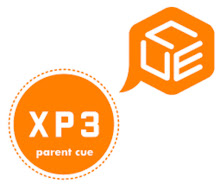We’re
Teaching This:
Everyone
loves a good story. Even if you hate reading, you probably don’t mind movies,
TV shows, or a great musical. There is just
something about a story, a good story
that we can’t resist. When we were little, all the great ones started with
“Once upon a time”. They were tales of heroes and villains, evil queens, noble
princes, and fairy godmothers. And
while the characters in our favorite stories look different now, not much else
has changed. We still love to see the good guy win, the bad guy lose, and the
couple live happily ever after. Maybe it’s because, no matter how old you are,
great stories have the power to pull you in and make you feel like you’re a part
of them. Jesus knew that and He often told stories, called parables, that
worked the same way. His stories may not
have involved princesses or evil villains, but as we take a look at four of
these famous parables we may just find that the characters look more familiar
than we could have ever imagined.
Think
About This:
What
was your teenager’s favorite story when he or she was little? And how many
times did you read that story to them? A hundred? A thousand? Sometimes as
parents of older children, we are tempted to look back nostalgically at
storytime and think, those were the days,
assuming they’re long-gone. But in the book, Losing Your Marbles: Playing for Keeps, Reggie Joiner explains that
the power of stories, especially stories over time, may make storytelling a
practice that is too important to abandon.
Experts have analyzed, theorized, and evangelized about the power
of story. Everyone seems to agree. It’s as if our minds are hardwired to engage
in the way information fits together in the context of
a narrative. One
specialist in this area puts it this way: If you ever need a little more proof
that God exists, consider the magical,
mystical,
imaginative, compelling
way
kids, teenagers—and everyone else for that matter—connect to stories. It seems
obvious that God created your imagination; then created stories to ignite it. Have
you ever considered that without imagination, you can’t . . .
see past
what you already know?
care how someone else feels?
hope beyond your present situation?
care how someone else feels?
hope beyond your present situation?
… That’s what the gift
of imagination and story does for a child or teenager.
It enables them to
think their way into other people’s lives.
It compels them to feel the
sentiments of other people’s emotions. It invites them to venture into other
people’s places.
Maybe that’s why research actually indicates the more stories you
read to a child over time, the greater their empathy. Because stories have the
potential to make you feel what someone else feels. Stories can collectively work to build a child’s
emotional,
relational,
and moral intelligence.
Think about what happens when a child imagines . . .
fighting
Smaug, the dragon, with Bilbo on the Lonely mountain, joining Annemarie in the Danish
Resistance during WWII,
traveling with Lucy through a mysterious wardrobe into
a frozen land.
They see more. They
care more. They hope more.
Try This
A
good story doesn’t have to be found in a children’s book. This week, try
enjoying a story that your student is already interested in by going to…
See a movie together.
It
doesn’t have to be a spiritual or “family” movie. It doesn’t have to have a
G-rating. It doesn’t even have to have some great moral to the story. Just see
a movie your student is interested in and then, on the ride home or while
enjoying a snack after the show, ask them one question:
Which character in
the movie do you identify with most?
Really listen to the answer. Don’t
correct them if you disagree. Just use this as a time to learn about your
student and enjoy hearing where they think they fit in the story.





